VMFS Recovery
Diskinternals VMFS Recovery™ is a tool to restore data from various Virtual Machine File Systems(VMFS). The software provides many thorough recovery procedures that you can rely on. VMFS Recovery is an indispensable and the most powerful tool for anyone using virtual machines, including VMware, VirtualPC, VirtualBox, Parallels, EnCase, and ProDiscover disk images. Among other benefits, it features VMware ESXi, ESX Servers and vSphere 6 support.
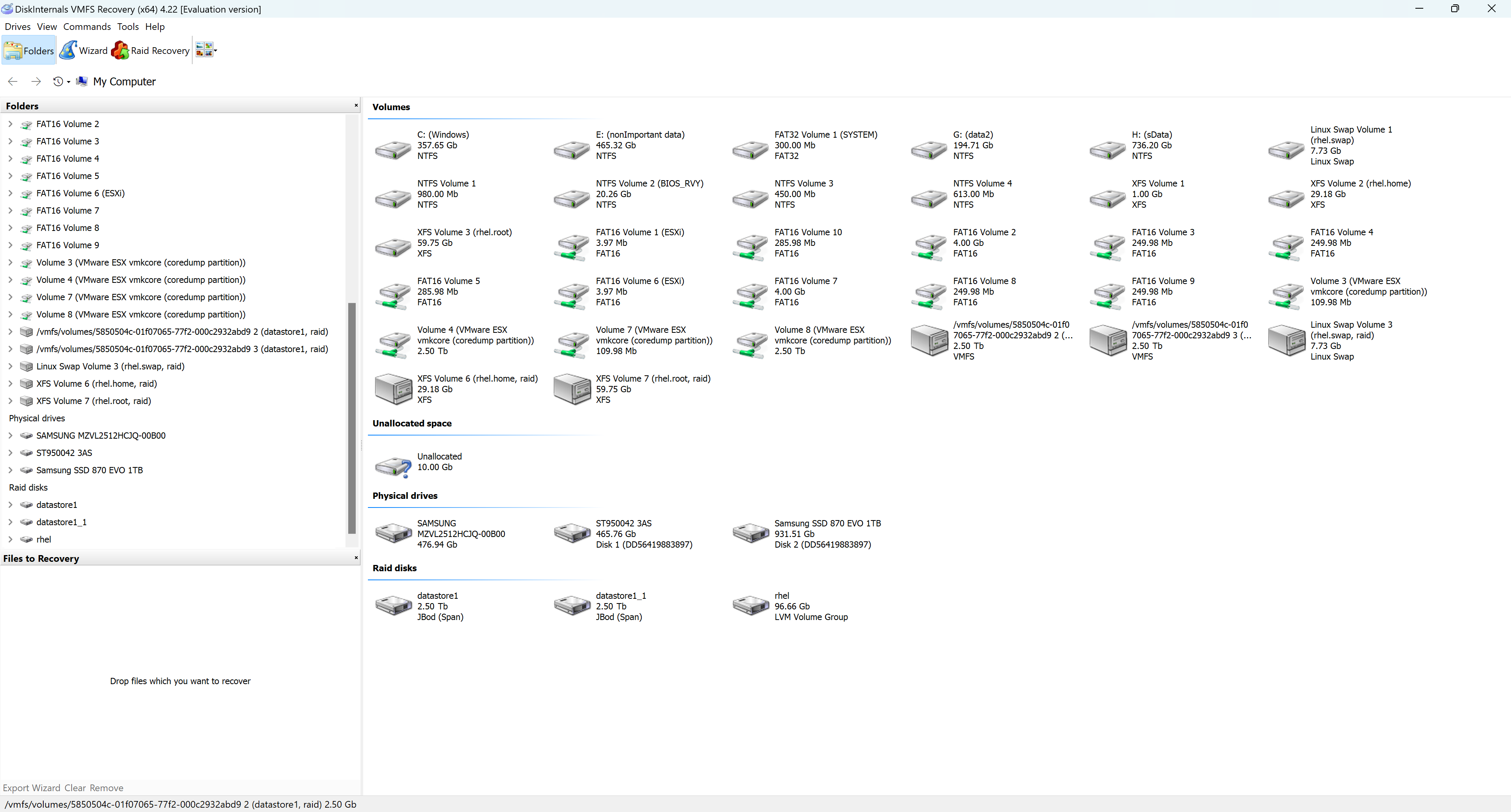
VMFS
VMware virtual machines are most common in the business environment. They are using their own file system to store VM data. Like we said before it is called VMFS. Diskinternals VMFS Recovery™ supports VMFS versions 3, 4, 5, and 6, partitions up to 64 TB, files larger than 2TB, and VMFS6 drives with more than 100,000,000 files on them. You can choose one of two modes depending on the task. Fast mode is recommended for existing or deleted file recovery when a disk is safe or slightly corrupted. Full mode helps to recover your data when a situation is far more complex.
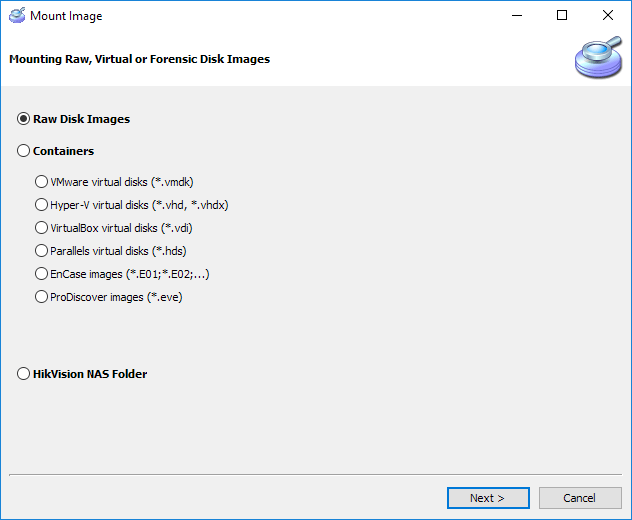
Different reasons can lead to a VMFS failure. Two widespread ones are damaged blocks and corrupted RAID arrays. Some cases can get very complicated! For example, a relatively big cluster of multiple virtual PCs is controlled by Vmware ESX Server and is stored on a RAID array. Suddenly either a RAID Controller or a RAID array fails.
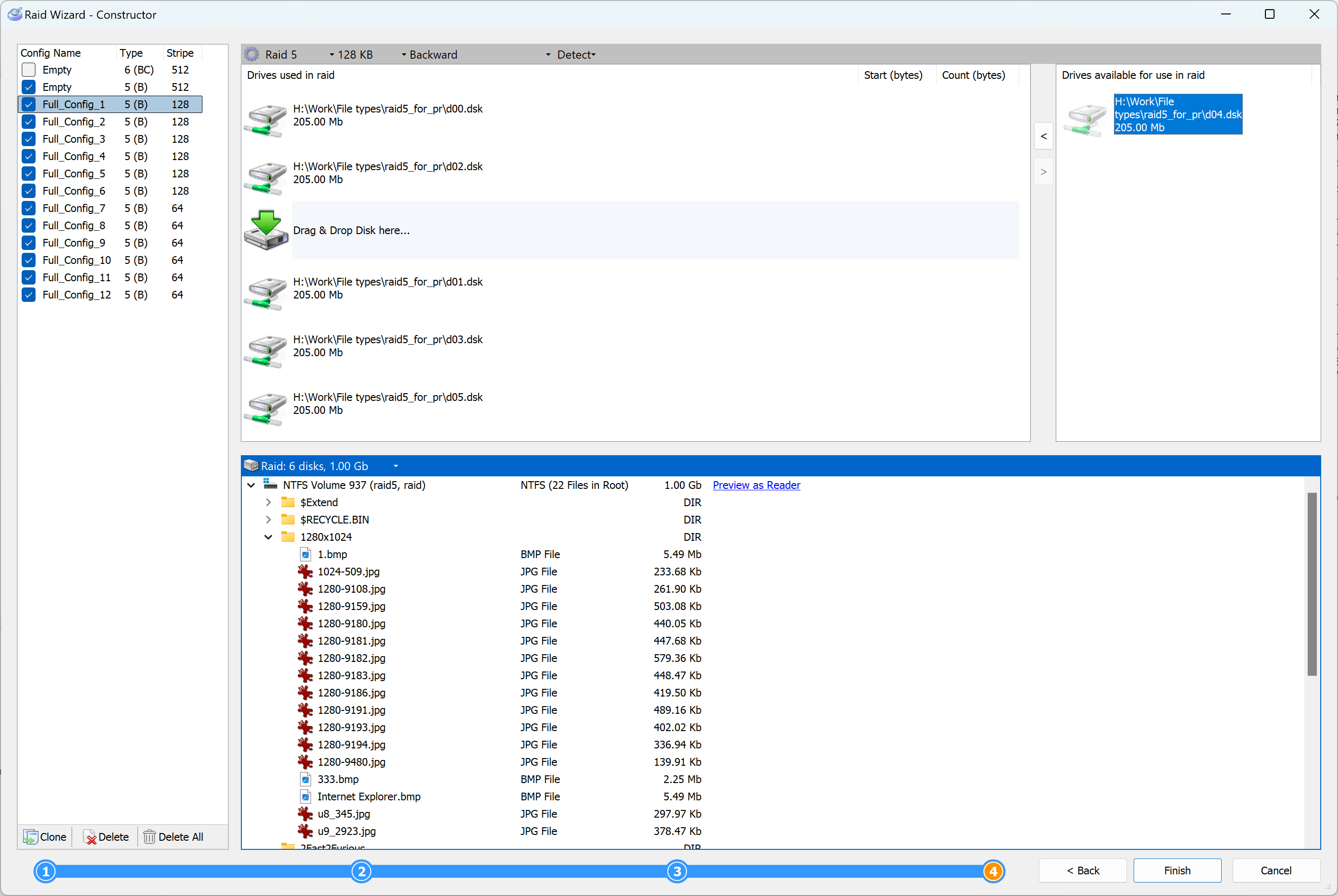
Built-in RAID Recovery
Diskinternals VMFS Recovery provides a corrupted RAID array reconstruction even if a dedicated RAID controller is damaged or inaccessible. With the JBOD, RAID 0, 1, 1E, 4, 5, 5R (HP RAID 5), RAID 6, 1+0, 5+0, and 6+0 support VMFS Recovery will restore virtual machine disks from safe and corrupted hard drives and RAID arrays allowing it to access corrupt data and then recover it like from a healthy VMFS disk.
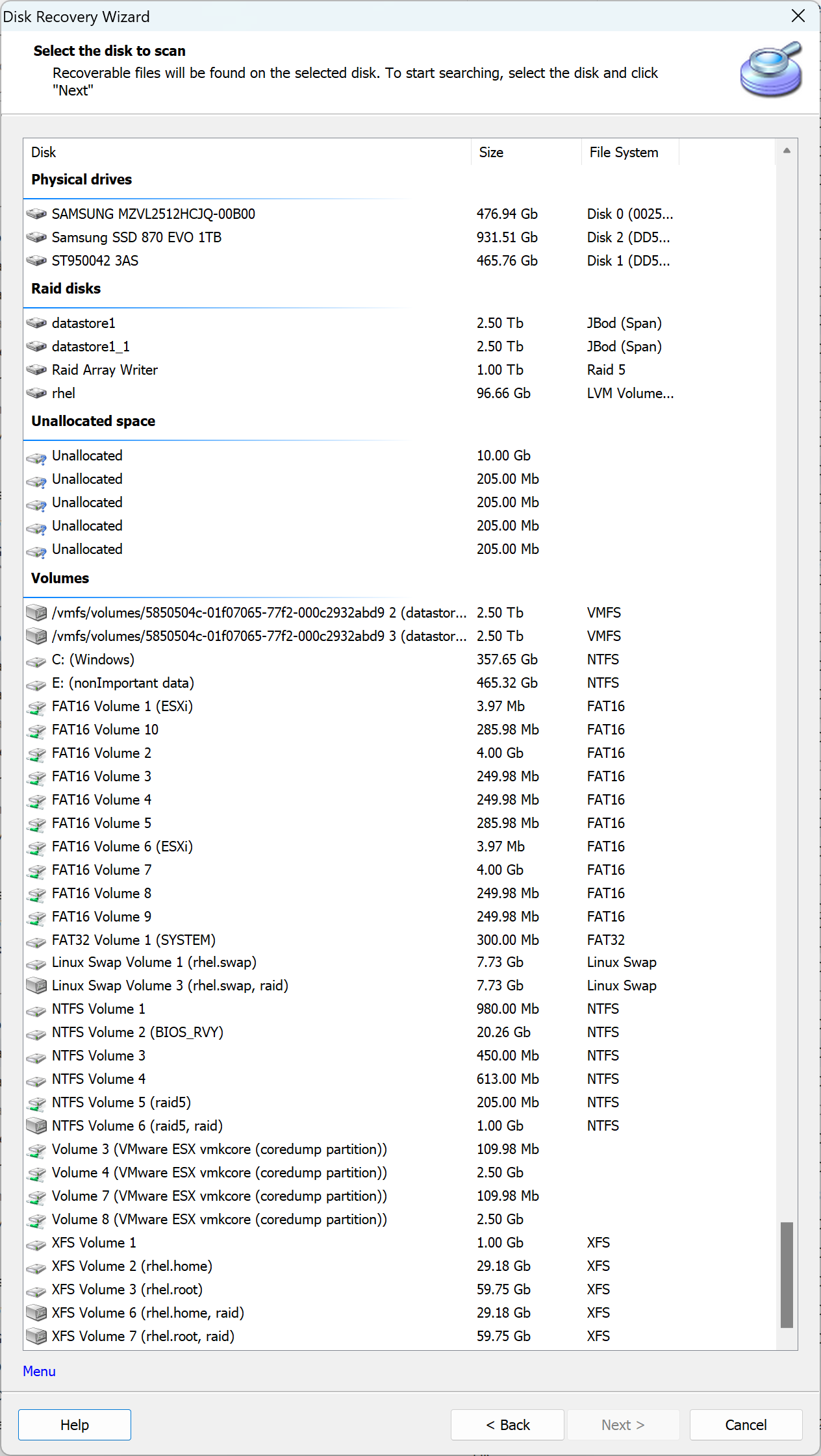
VMware ESXi Server Recovery
You can recover virtual PC images from VMware ESXi servers. In this case, VMFS Recovery performs a two-stage procedure. During the first stage, a damaged VMware ESX/ESXi storage is recovered, as soon as it's done and VMFS Recovery has an access to separate virtual machines and their VDMK disks, the second stage is processed. VMFS Recovery analyses and recovers data inside VMDK files rebuilding guest file system and disk structures.
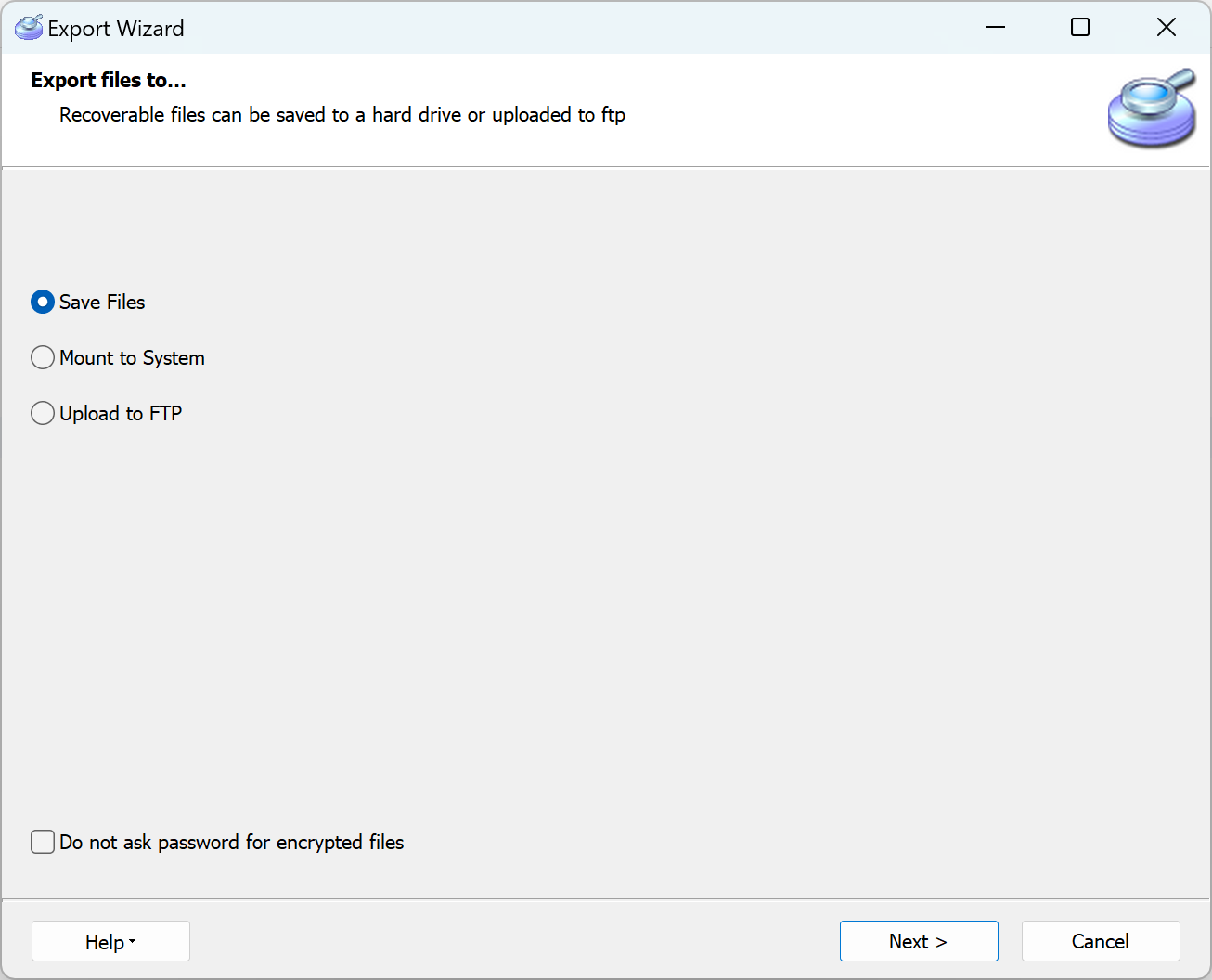
Online Recovery
To preserve the integrity of deleted or damaged data, it's better to stop the VMware ESXi server and lock the disks from any disk operations. However, it may be impossible to stop the production server. Another common case is when the VMware ESXi environment is leased and you have no physical access to the server. In such cases, you are able to recover your data by SSH or iSCSI network protocols. They help access the ESXi server online and recover lost data.
Built-in preview
Mount recovered VMDK file in Diskinternals VMFS Recovery to check the integrity of recovered data before the purchase. A detailed guide on this procedure is available here.
System Requirements
You need a standard PC with Windows 7 or higher to run Diskinternals VMFS Recovery. However, we would recommend you use Windows 10 with 16 Gb of RAM as the software builds an entire VMFS structure in RAM before recovering. The larger your VMFS disks or ESXi Server the more RAM would be appreciated. Please also note the disk space: VMFS Recovery needs about 70Mb to install but a lot of free disk space to save recovered data. It depends on the size of VM data, you are recovering.
Download









